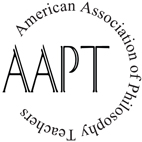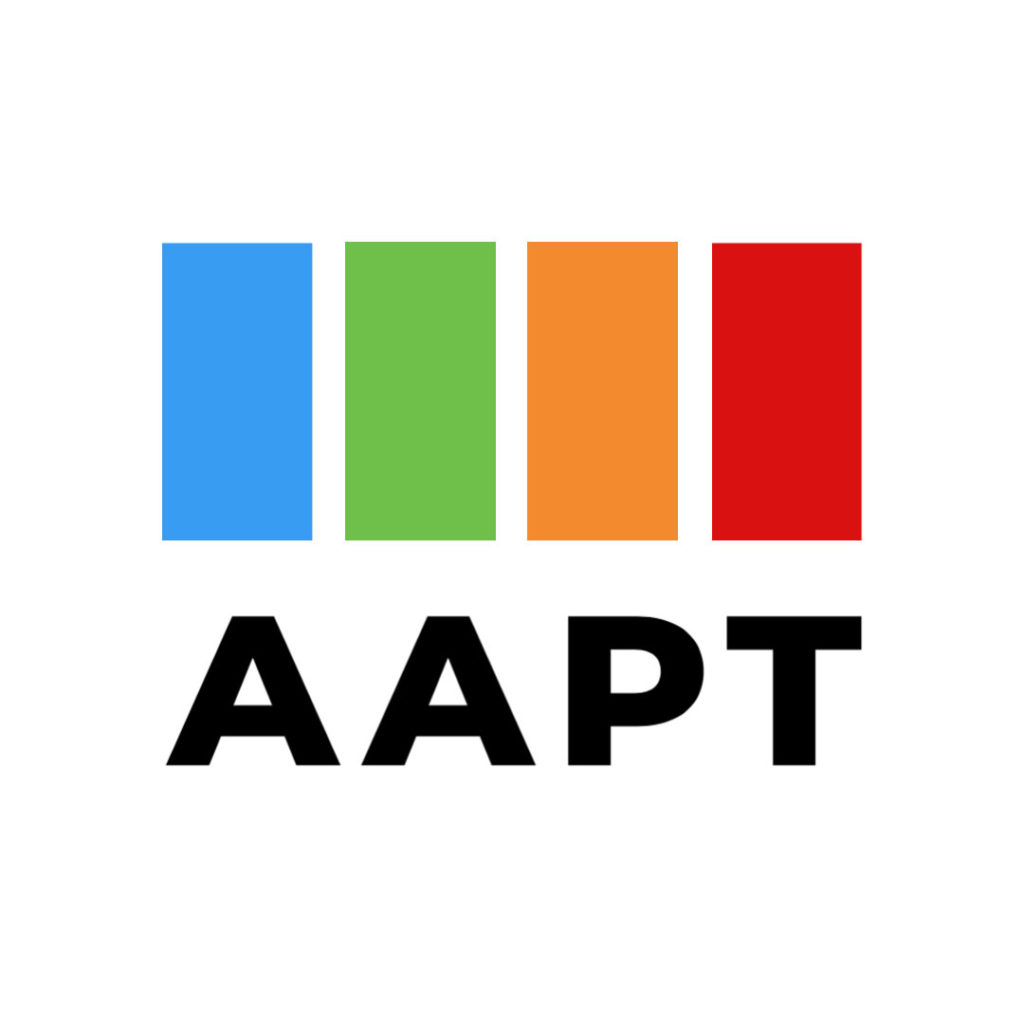Talking/Teaching Fall 2023 Schedule
Talking/Teaching is a series of one hour, facilitator-led online conversations about a topic in teaching philosophy. Participation is free, and you need not be an AAPT member to attend. We’d love to see you there!
Register here for the Fall 2023 series. Once registered, you can attend any of the remaining sessions: https://zoom.us/meeting/register/tJEpde-rqzsqEtEv_H0LtPY2e1wcogzqdwmt
Schedule
10/23, 3pm EDT, Drew Van’t Land, Community College of Allegheny County, “Transdisciplinary Categories in Learning”
I’d like to discuss a barrier to student learning which I call hermeneutic confusion – a disorientation within one’s own intellectual architecture, namely the following phenomenological categories: subjects and objects of experience, wholes and parts, concepts and symbols, definitions and descriptions, facts and values, causes and correlations, explanatory and predictive theories, and arguments and equations. For instance, a student might mistake a normative claim for a descriptive one. Or they might discuss several concepts (ex. “colonialism and politics”) as if they inhabit the same ontological level when one is more general than – and inclusive of – the other (ex. “colonialism as a form of politics”). Or they might misread a modus tollens argument and critique the author on exactly the same grounds that the author is critiquing their own interlocutor. These could all be considered formal or informal fallacies from the perspective of logic and critical thinking, but they occur in processing new information as much as in analyzing or constructing arguments. In order to consider how our philosophy students might overcome their hermeneutic confusion, the group might discuss:
1. The experiences of students who have struggled to grasp course content at a purely analytical level, particularly by mistaking some of these categories for others.
2. The relations between these categories, and how to help students distinguish between them.
3. What exactly it means to say that philosophy is “abstract” relative to scientific disciplines, insofar as all fields use the same abstract categories (ex. object, theory, explanation) albeit in different ways.
4. Whether and how a unified philosophical model of these categories might enhance students’ learning experiences in all college courses, including philosophy classes.
10/30, noon EDT, Ana Gomez, Assessment in large classrooms: strategies and anecdotes.
How do you keep up with your students’ progress when you are not grading their work? How do you assess your own performance as an instructor? This session seeks to discuss successful assessment strategies implemented in large classroom settings, especially by instructors with teaching assistants. As a first-time instructor of a large-lecture I was looking forward to a major change: the new distance between students and me. I wouldn’t be their teaching assistant anymore and that meant I had to rely on the person in that role to collect real-time, honest information about how students were progressing and their impressions on lectures and assignments. Inspired by my participation in the AAPT Seminar in the summer 2022, specifically in the session led by Sarah Donovan, I implemented strategies and learned lessons that I will share with the attendants of this session.
11/06, 3pm EDT, Emily Esch & Andrew Mills, College of St. Benedict and St. John’s University & Otterbein University, “Encouraging students to read: the power of Perusall”
We are big believers in the power of Perusall to help students gain a deeper understanding of the texts for a course, to learn how to read closely, and to get an opportunity to engage with each other around the text. We have successfully used Perusall for many years, and we hope to introduce participants to the logistics of the platform, talk about the instructions we give to our students, and host a discussion of the many benefits that Perusall offers philosophy teachers.
11/13, noon EST, David Concepcion, Ball State University, “Equitable Grading”
What should (not) go into a course grade?
Often term grades are a hodgepodge. They reflect student behavior and circumstances as well as what a student knows or has learned (to do). When, if ever, is it acceptable to give course credit for anything other than learning? Many course grading schemes include points for attendance or attending an evening event. While attendance is instrumental to learning, it is not itself learning. We might generalize the topic question to: When is credit for instrumental behavior acceptable (or required)? This invites an additional question: Why are certain instrumental behaviors given credit but others (e.g., getting a good night’s sleep) not? At its most broad, the question here is: What may go into a course grade? And, of course, answering this question requires us to consider what people think grades reflect. Lastly, course credit for behavior and circumstance exacerbates a status quo of injustice, then shouldn’t we stop including it?
11/20, 3pm Marcus Schultz-Bergin, Cleveland State University, topic tbd
11/27, noon TBD
12/04, 3pm Kevin Gannon, Queens University of Charolotte, “What the heck are we doing with ChatGPT?”


